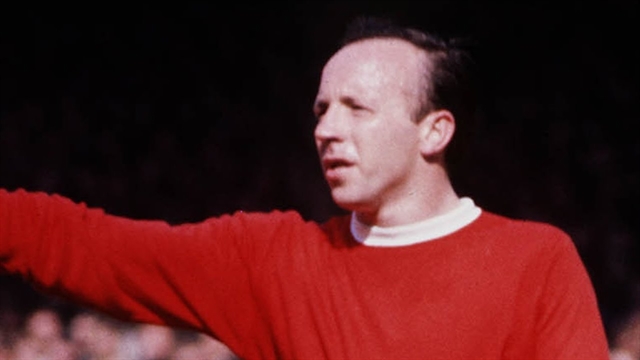 Sports
Sports


|
| LEGEND: Former Manchester United and England star Nobby Stiles who died last month of dementia. Photo England/Twitter |
Paul Kennedy
Speaking from experience, I can wholeheartedly recommend NOT watching an English Premier League game in the company of a Canadian ice hockey fan.
The complaints are endless.
“Why is he rolling on the floor, he hardly touched him?” “Why is that a foul, he didn't elbow him that hard?” “Why is he being substituted, he can still walk?”
It also pains me to say that more often than not, this particular friend I watched games with was right.
Play acting, or ‘flopping’ as my North American buddies call it, is an ugly side to professional football. Seeing a player roll around on the floor like he has been shot just to get an opponent sent off is not necessary.
So that’s why it’s often reassuring to see some older matches from football’s vault when shorts were short, haircuts horrendous and tackles tough.
You could argue that in days gone by the football was much more of a ‘man’s game’ and the only acting you would see was when the odd player did a cheesy commercial for aftershave or alcohol (I’m thinking Kevin Keegan, Brut).
But as the years pass there is increasing concern that more and more footballers from the sixties and seventies are succumbing to dementia in later life.
One national newspaper in the UK has even launched a campaign calling for more research and support from the Professional Footballers’ Association (PFA), the union that looks after the affairs of players past and present.
England World Cup winner Nobby Stiles succumbed to dementia last month, and his own son has said he hopes the death of his father will encourage the powers that be to do more to support and help former pros who are dying because of their commitment to the game in years gone by.
Footballs were far heavier in the past and every time a player headed the ball would undoubtedly have taken its toll on their brains.
There is so much money in the modern game it is difficult to understand why more isn’t being done to help former players.
You see time after time footballers who were once national heroes so down on their luck they are forced to sell medals or international caps just to make ends meet.
The campaign launched in the UK is far-reaching. Among many things it calls for dementia to be recognised as an industrial disease, a condition caused by the sufferers’ job, in this case, football.
It also asks for the PFA to support families of those past players now in agonising conditions and for a specialist dementia team to be set up to look at the connections between heading the ball and illness in later life.
It also asks for a reduction in the amount of times modern day footballers practice heading, calling for a maximum of 20 headers per session and 48 hours between sessions.
This must be expanded into youth games too, and maybe even at schoolchild level remove heading the ball all together.
Today the game has changed, modern balls are far lighter than those in the past but unless we stop to research the consequences, we won't know the long term affects.
So next time a player is ever so slightly brushed in the box and goes down like they have just been on the receiving end of a Mike Tyson right hook, they should remember the sacrifices made by their predecessors, and hope beyond hope they never find themselves in real pain in years to come. VNS




